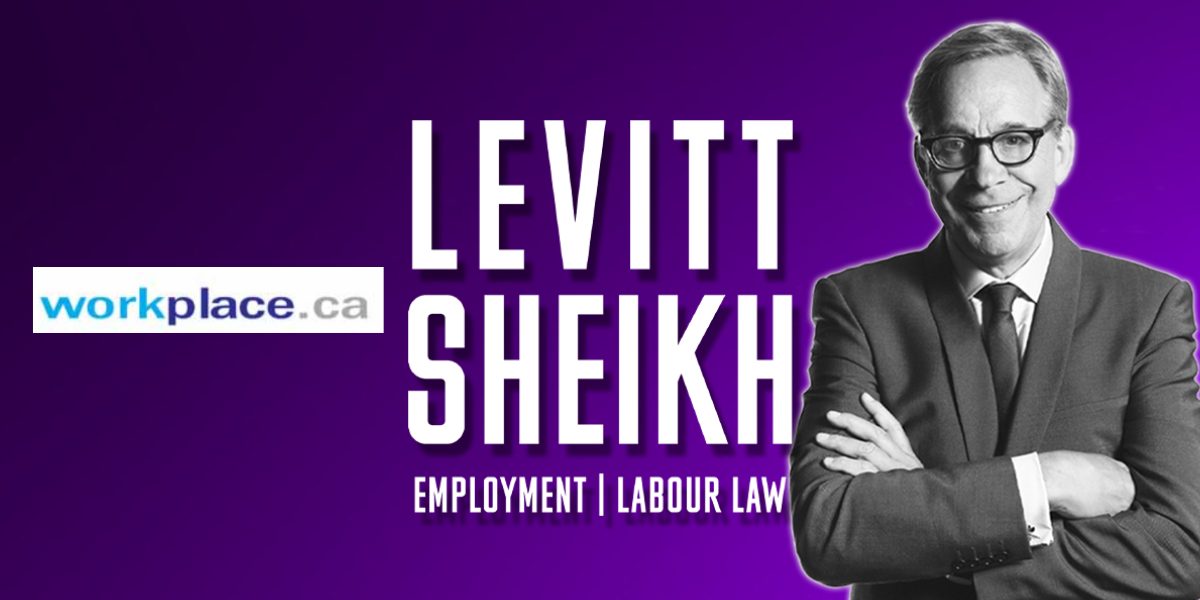It’s not just a quick shakedown of the employer
Ibegan practicing law in 1979, when it was genuinely a “profession”. The job, as you
were trained, was to serve clients. That may not always be the case today. Too many
lawyers are creations of advertising and their role, as they see it, is to make extravagant
allegations so as to shakedown employers and get as much money as they can paid non-taxably, regardless of whether CRA would permit it, if the truth of the facts was known.
Clients are seen as commodities, a means to personal enrichment for the lawyer in question. They make
allegations without considering their accuracy, if that will result in a higher settlement or in structuring that
severance to avoid income tax. It is a game.
It is not about taking difficult or tough positions which, if done in good faith, are perfectly permissible, but
in dishonest allegations for the purpose of embarrassing the employer. I am confident that most employers
have experienced this. Part of this is lack of training of the junior lawyers handling these files but another
part is more deliberate.
In a recent mediation case I was involved in, the demand letter, Statement of Claim and Mediation Brief
bore scant relationship to the case in question, much of it almost a cut and paste of every other similar
document from that firm, regardless of the facts of any particular case. I had an examination for discovery
(a deposition under oath of the opposing party) before this mediation. In my Mediation Brief prepared in
advance to send to the mediator, I pointed out nine different lies in the letter of demand and Statement of
Claim which the employee admitted during discovery were false and advised that he had told his lawyer no
such thing. That is the problem with cut and paste letters of demand without regard to the facts. I stated in
our Mediation Brief that the firm in question used essentially the same allegations in virtually all of their
claims, regardless of their verity and that the mediator, from his own experience with that firm, would know
that.
One example was the accusation against my client that this employee was fired because he was too old,
i.e., 48. However, this employee admitted in discovery that every other manager was at least as old as he
was and, in many cases, much older, and that he never believed that his age resulted in his discharge. How
will a Judge react to even that one lie, let alone the employee permitting it to appear in the letter of demand
that he acknowledged reviewing before it was sent?
The owner of the company I was representing was himself a victim of racism. He fled the Middle East to
Canada years ago to escape anti-Semitism. This employee admitted that the business was “a regular United
Nations” consisting of every race under the sun, transgenders, gays, everybody, and that the owner
personally was viscerally opposed to any human rights violation. He further admitted that the owner would
take these allegations very personally and that they were unfounded. Did it not strike him or his lawyer that
this would make the employer LESS likely to settle or agree to any nontaxable damages for mental stress,
punitive damages, etc.
Other misstatements include: that the employee was actively recruited when he had been unemployed for
almost a year and accepted a salary 25% less than he last earned; that he had received a $25,000 annual
bonus when he received it only once with no bonus in other years; and that he did not receive his ESA
entitlements or EI Record of Employment upon termination when he had.
On the main issue in the case itself, the employee had been on lay-off, approached an executive and
asked to be terminated rather than remain indefinitely laid off. Since 1,200 employees were on lay-off,
there was no apparent hope then of re-opening and the company was uncertain about its future, only a
small severance package was offered. The employee accepted it. Four months later, through this law firm,
he issued a claim for wrongful dismissal. Although no release had been signed, the employee admitted
under oath during discovery that he had agreed to the severance amount offered.
Why would this law firm then issue a claim? Was it because no release was signed and it assumed we
could not prove that the parties had agreed and perhaps did not expect that its client would admit to the
agreement under oath when I deposed him at examination for discovery? Or did the client leave out that
detail to the law firm which did not properly question him on it even though it was the most fundamental
aspect of the case?
The Company took a tough position, and with the assistance of an excellent mediator, he dropped his
case without payment even of legal fees. How large was his legal bill after the entire process, including
mediation and discovery?
This case is but one of many where allegations are made without substance by junior lawyers motivated
to take exaggerated positions for what they hope will be a quick shakedown. It also serves as a lesson to
employers not to succumb to them.

